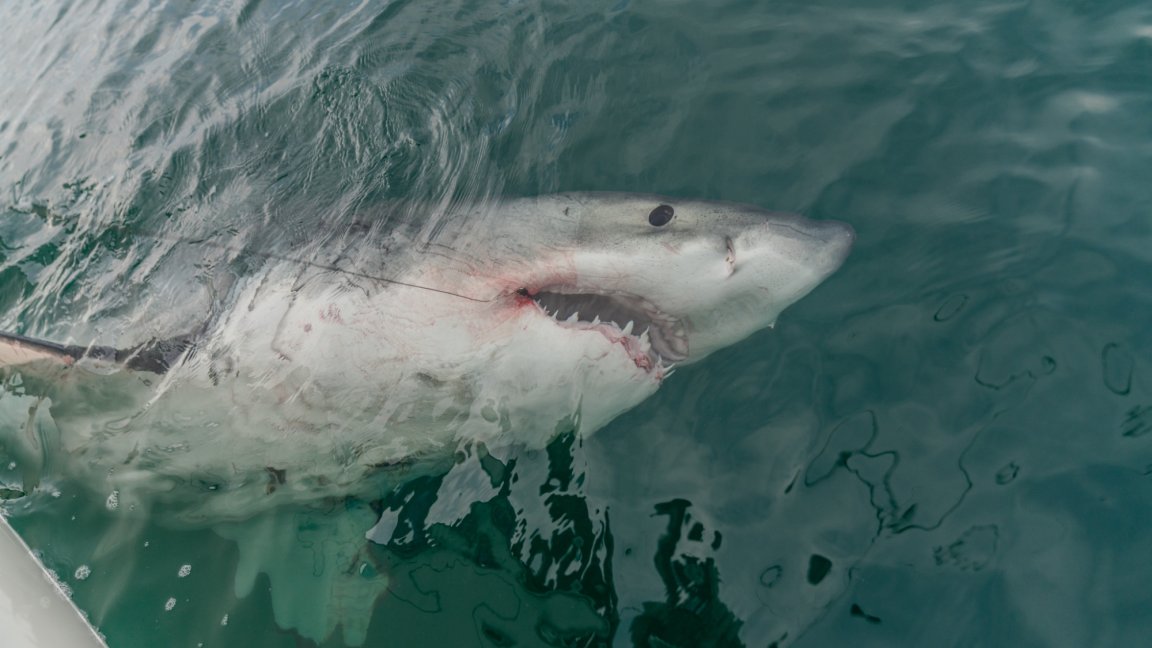A 14-foot female white shark with a tracking tag that biologists nicknamed “LeeBeth” has traveled over 2,000 miles since Dec. 8, from the waters off the coast of Hilton Head Island in South Carolina to Matamoros, Mexico, near the Texas border on the Gulf Coast. Her journey to the waters near the border marked the farthest into the Gulf of Mexico biologists have ever tracked a white shark.
Researchers are able to use LeeBeth’s journey as evidence that the Gulf of Mexico might support more white sharks than previously thought.
“We don’t know how many white sharks travel that far west, but it’s a good indication they do,” Atlantic White Shark Conservancy senior scientist Megan Winton told NBC Boston. “There are only a handful of sharks that have been tracked west of the Mississippi.”
LeeBeth, who tips the scales at around 2,600 pounds, is an especially easy shark to track because of how frequently she breaches the water’s surface. When she does so for longer than 45 seconds, the tracker on her dorsal fin connects with overhead satellites that ping AWSC researchers. It was a big deal when she pinged off the coast of South Padre Island National Seashore, just north of the international border. This was already farther than any great white had every dipped into the Gulf. But she kept working south after that.

A map of her journey shows dozens of pings. She hugged the east coast of Florida before wrapping around the southern tip. Then she stayed a ways off shore along the west coast. She returned closer to land again on Alabama’s sliver of coastline before swerving far out around New Orleans. Then she checked back in very close to Padre Island, and in deeper ocean near Matamoros. She has since swum back north, pinging near Sabine Pass on the Texas-Louisiana Coast Thursday.
Capt. Chip Michalove, owner of Outcast Sport Fishing and an AWSC researcher, tagged LeeBeth.
Read Next: Great White Shark Tales from Cape Cod Captains
“Covered in scars from chewing on seals, she swam off with a satellite spot tag that you’ll be able to track on the Sharktivity app, a [satellite] tag that’ll detach in 8 months, and THE FIRST CAMERA TAG EVER PUT ON A SHARK IN SC,” Michalove wrote in a Facebook post on Dec. 9. “This cam tag is recording her daily routine and will detach shortly. Megan Winton from Atlantic White Shark Conservancy came all the way from Cape Cod to attach it.”
AWSC released footage from the camera in February.
Read Next: Did Anglers Accidentally Kill the 15-Foot-Long Great White Shark That Washed Up in Florida?
“Not only one of the biggest sharks we’ve caught, but she’s the best-pinging shark as well,” Michalove told NBC Boston. “We definitely hit a home run with [her].”
